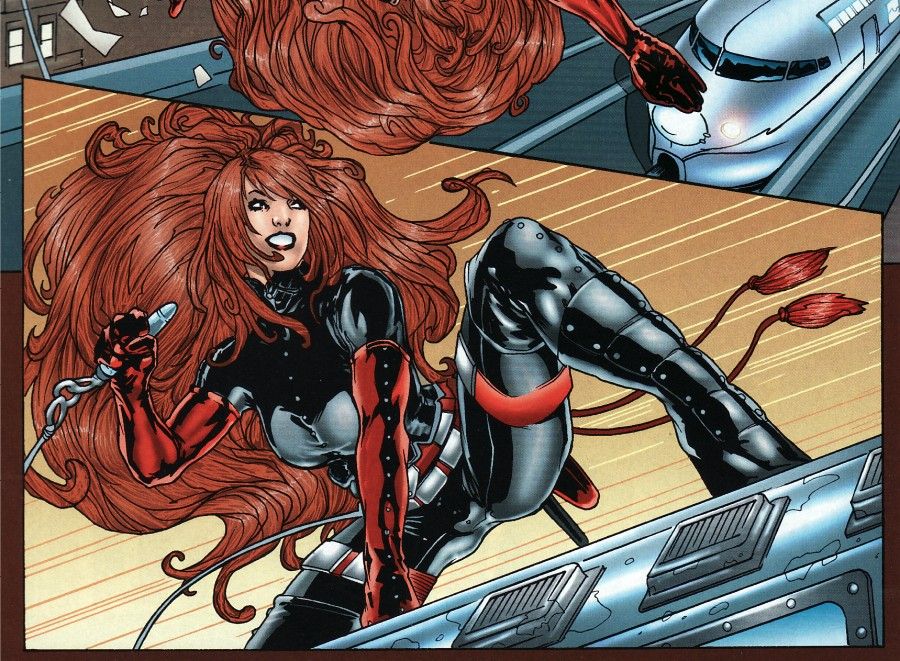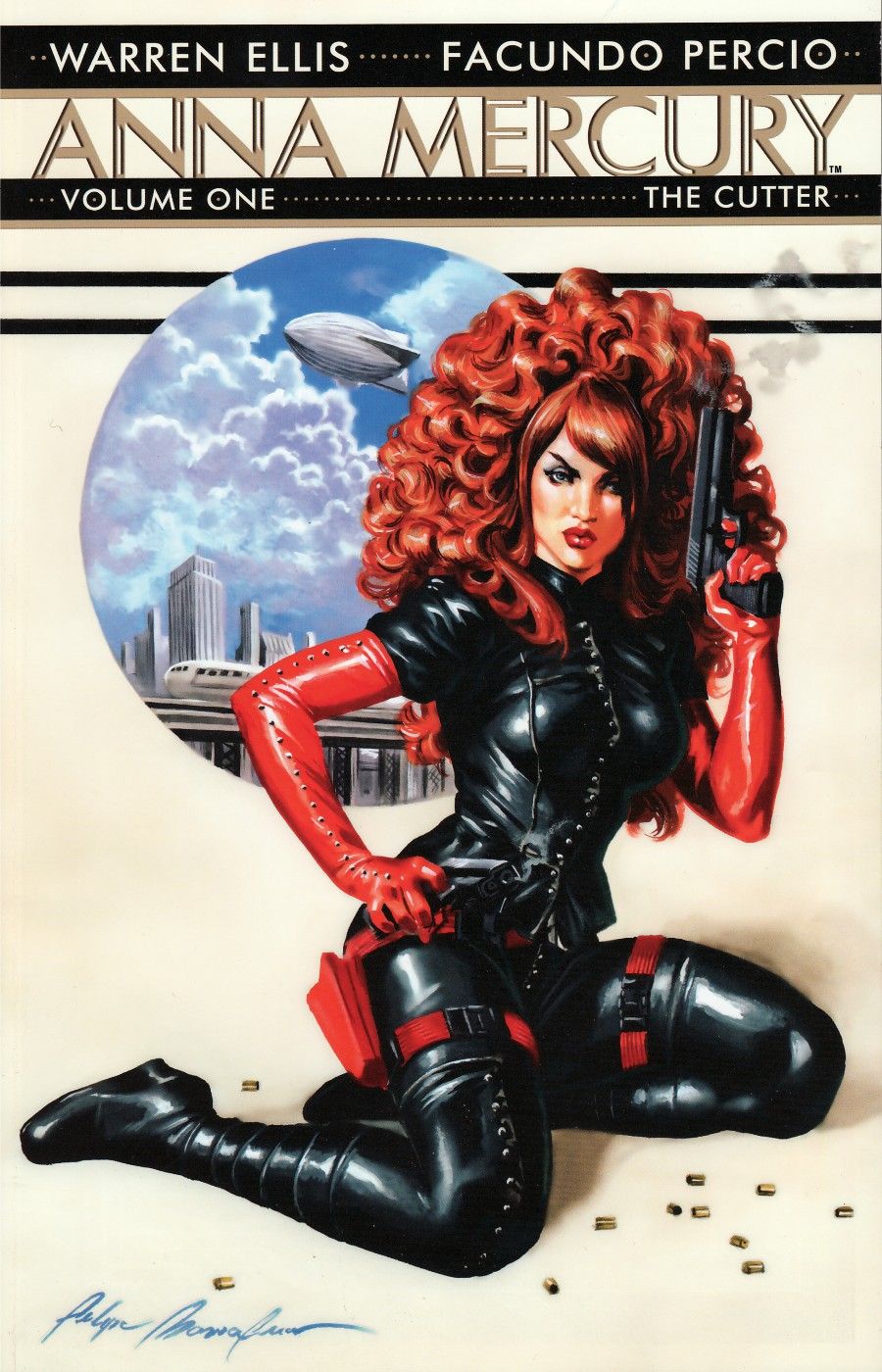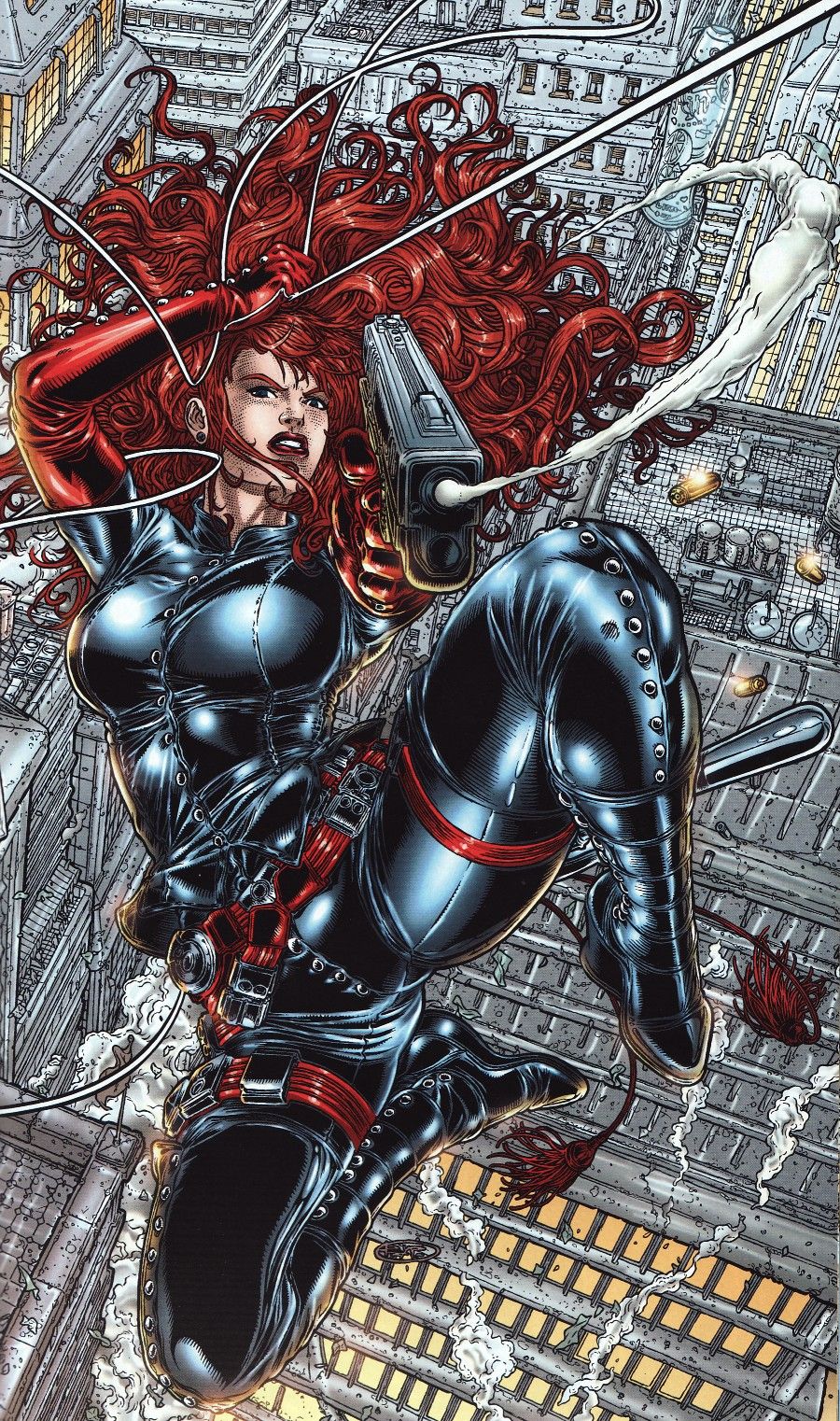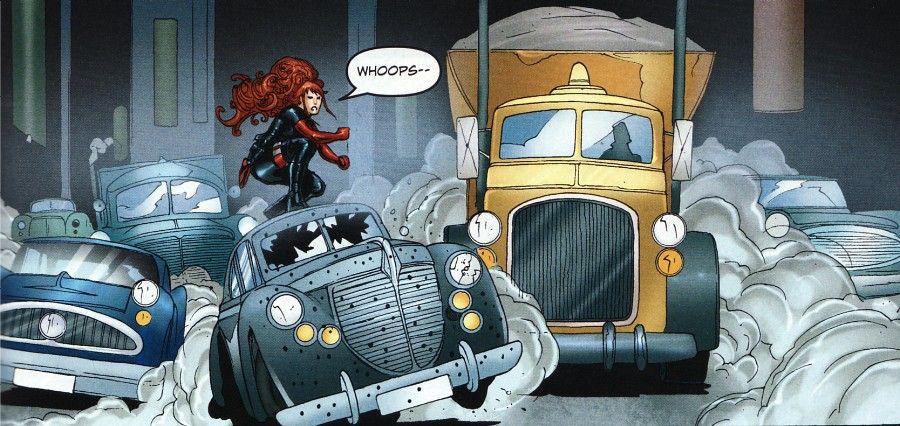Written by Warren Ellis; Illustrated by Facundo Percio
Avatar; $19.99
I'm a late adapter about most things, but it seems especially true about Warren Ellis. I mean, I think he's one of the smartest people in the room when talking about the future of comics, but I can count on one hand the number of stories I've actually read by him. Fell, Ocean, and Orbiter are the only ones that immediately come to mind. I know I should at least read NextWave; I just haven't gotten around to it yet.
I could easily derail this article by trying to analyze why I haven't read more of Ellis' stuff when I really do love what I've read so far. I'll skip that bit, but I think it has something to do with how smart he is and how I normally don't equate "smart" with "exciting."
I know I'm gonna get in trouble for that last statement, so let me explain. I don't think that intelligent writing equals boring, but so much of what I read from Ellis - in his newsletter; on his messageboard - is him talking about ideas. Where things are going and how best to capitalize on that. It's fascinating stuff, but I'm finding that as I consider picking up his fiction I have this expectation that it's going to be more of that. I mean, he's a science fiction writer. Science fiction is all about predicting the future and commenting about it through stories. And honestly? I'm not a fan of hard science fiction. Give me Flash Gordon and John Carter over 2001 and the Foundation Trilogy any day (you can see how up-to-date I am on the latest sci-fi).
When Anna Mercury came out, I was excited right away. The character looks awesome with her dramatic red-and-black costume and improbably long, auburn hair. It didn't hurt either that all the art showed her leaping out over futuristic cityscapes with gun drawn. This was a far cry from the thoughtful mystery of Orbiter or the building suspense of Ocean. It promised adventure and excitement. It promised kicking and punching and shooting and jumping and more kicking. And oh baby it delivers.
The thing is, it doesn't sacrifice smart ideas to give all that. Ellis has created a world in which the Philadelphia Experiment caused a much bigger problem than an unexplained phenomenon and some dead soldiers. The Eldridge went through space and time and appeared on the streets of a parallel Earth, one of nine in invisible orbit around our Earth. That event not only revealed our presence to the inhabitants of the city (called New Ataraxia) in which the destroyer appeared, it significantly affected the development of their culture. It made them believe that God had shown up and revealed to them the path that they should follow. They developed a religion around trying to create war machinery of their own and went into battle with the other major city on their planet. Our Earth - feeling responsible for this and guilty to boot - has taken to sending special agents to the other one, trying to control the damage and protect New Ataraxia's neighbor, the city of Sheol. Anna Mercury is the most recent - and best - of those agents.
Ellis does all the exposition and world-building in the form of a briefing between the new Prime Minister of England and the head of the UK branch of the Constellation project (the Constellation being our Earth's nickname for the arrangement of the ten parallel worlds in close proximity to each other). That might've been boring but Ellis keeps things moving by having the briefing take place during one of Anna's missions: taking out a new weapon that New Ataraxia has developed, a giant, moon-mounted laser called the Cutter. As we cut back and forth between multiple scenes (the mission and the briefing both keep getting interupted and take place over the course of a couple of days) we learn about the world while watching Anna plummet from rooftops, land on bullet trains, ride rockets, shoot bad guys, and gleefully knock out teeth.
The briefing scenes are also livened by the personality of the Constellation project's director. He's a charming old dude who obviously cares about Anna and places an appropriate amount of importance on the work they're all doing, but doesn't seem wearied by it. He's refreshingly optimistic and that sets the tone for the entire book.
Anna's also a cheerful character, which understandably leads some of her co-workers to question her sanity. That's what I love about the story. Ellis and artist Facundo Percio give it brightness, but balance it with serious, realistic concerns. Even Anna's outlandish appearance turns out to be deliberate and manufactured. Ellis and Percio go out of their way to humanize her. Not to the point of destroying the glitter, but to enhance it and make it that much more real and exciting. She's tough, but not invulnerable. It's a thrilling book, but not cartoonishly so.
Five out of five super-agents surfing on shot-up gangster cars.




